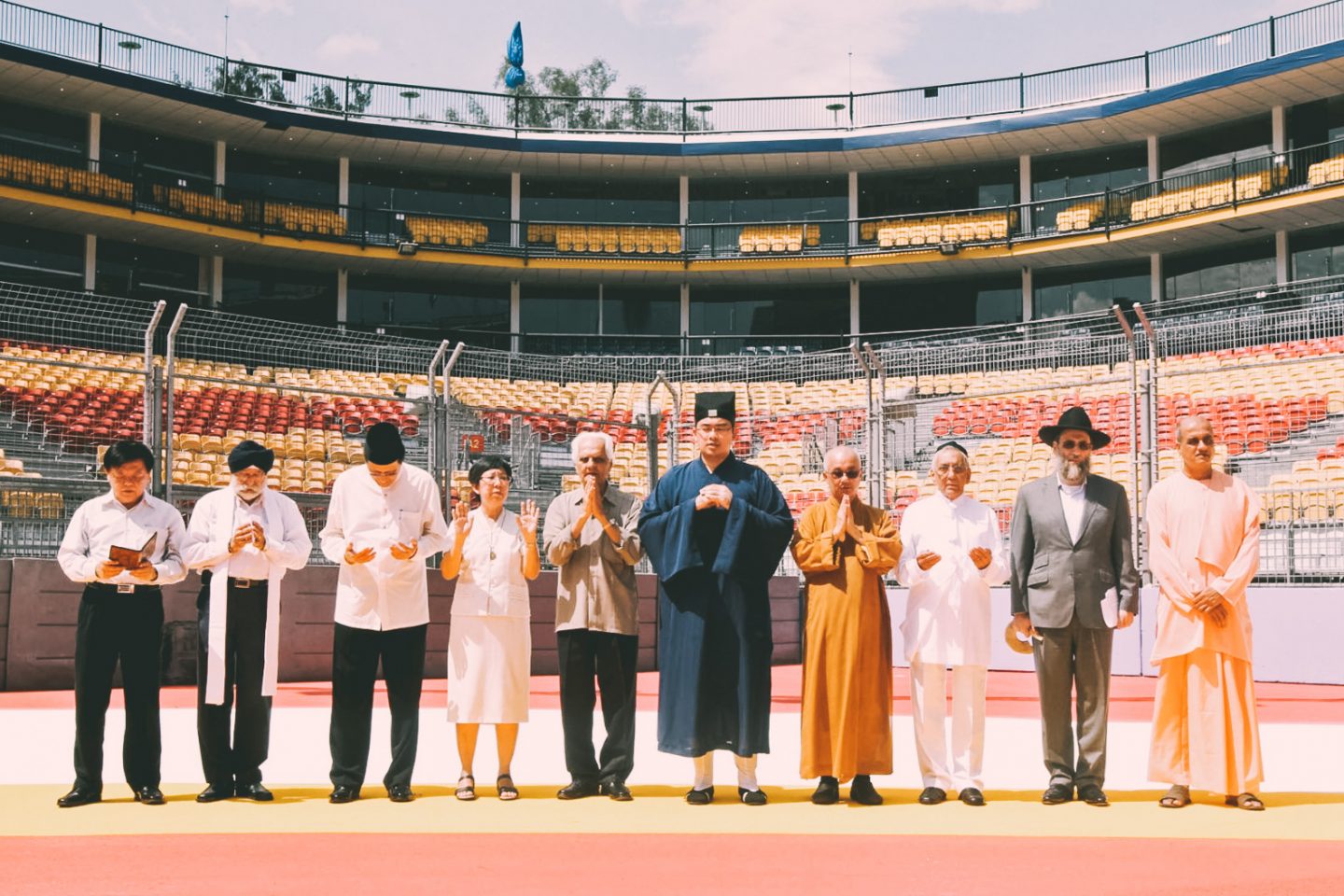The recent incident involving the imam who was fined $4,000 for making a supplication during a Friday prayer, “Grant us help against the Jews and the Christians”, is a reminder of the strict stance taken by the Government towards religious harmony in Singapore.
Prior to his conviction in court, the imam had met with and apologised to leaders of other faiths, including Christian and Jewish leaders, who accepted his apology.
Over the past few weeks, many Government ministers and religious leaders have spoken out emphasising the importance of religious harmony and cautioning against words and actions that may promote enmity between different religious groups.
This is certainly not the first time that an incident has occurred in Singapore involving religiously offensive remarks, and probably will not be the last.
The special sensitivity of the Singapore Government towards the risk of interreligious tensions has been shaped in large part by Singapore’s history of racial and religious tensions during its formative years, such as the Maria Hertogh riots in 1950 and the racial riots of 1964.
In a 1989 White Paper on the Maintenance of Religious Harmony, the Singapore Government mooted the idea of passing laws to maintain religious harmony.
It noted that “all the great religions of the world are represented in Singapore”. Hence, “religious and racial harmony are not just desirable ideals to be achieved, but essential conditions for our survival as one nation”.
Under the Singapore Constitution, everyone has the right to profess, practise and propagate his religion – but this is subject to public order, public health and morality.
Therefore, while one has the freedom of proselytise, this “must be exercised very sensitively”, without denigrating the religion of another because “the potential for giving offence is great”.
The White Paper drew a distinction between legitimate forms of religious instruction to followers on one hand, and provocative forms of preaching on the other.
While one has the freedom of proselytise, this “must be exercised very sensitively”, without denigrating the religion of another because “the potential for giving offence is great”.
It recognised that “each religious group, in instructing its own followers, will naturally need to point out where its doctrines differ from other religions, and indeed from other branches of the same religion, and why it regards the others as being mistaken”.
However, the Government warned against going “too far”, giving an example of “an unrestrained preacher pouring forth blood and thunder and denouncing the followers of other faiths as misguided infidels and lost souls” as one that may cause “great umbrage to entire communities” and may lead to a situation where other groups may retaliate or even resort to violence – thereby permanently destroying the tolerance and mutual trust which form the basis of Singapore society.
Over the course of the past several years, there have been a number of incidents involving Christians whose remarks caused offence to people of other faiths.
For instance, in 2009, a Christian couple was sentenced to 8 weeks’ imprisonment for sending out tracts titled “Who is Allah?” and “The Little Bride” produced by Chick Publications to various Muslims. The recipients of the tracts had reported the matter to the authorities as they found the contents of the tracts to be offensive and had denigrated Islam.
In 2010, Pastor Rony Tan of Lighthouse Evangelism was called up by the Internal Security Department over video clips posted online involving interviews with a former monk and nun about their previous Buddhist and Taoist beliefs, offending people of those faiths.
After being warned by the Government, the pastor apologised, both on the church website and in person to Buddhist and Taoist leaders, removed the videos from the church website, and urged his congregation to respect other beliefs.
In 2012, the National University of Singapore ordered Campus Crusade for Christ to stop all activities on campus over certain posters meant to promote mission trips to Thailand and Turkey. One poster had described Thailand as a place of “little true joy” because of Buddhism, while Turkey “needed much prayer and work” because much of the population was Muslim.
The group apologised for its “disrespectful and insensitive” remarks and was subsequently allowed to resume its activities on campus after being warned by the administration.
What can we learn from these examples?
Many of the instances mentioned above certainly began with the right intention: To advance the Gospel, as Jesus called every one of His followers to do in Matthew 28:19.
But at the same time, as the National Council of Churches pointed out in a September 2010 statement, He also “tells His followers to love their neighbours and pray for all, including those who hate them, and to live in peace with all”.
These principles are nicely summed up in 1 Peter 3:15, where the apostle exhorted the believers: “Always be prepared to give an answer to everyone who asks you to give the reason for the hope that you have. But do this with gentleness and respect.”
Sharing the Gospel in a multi-religious society like Singapore presents its own unique set of challenges and sensitivities.
If we find ourselves at the receiving end of comments that sound offensive to our ears, we should do as the apostle James teaches, to “be quick to listen, slow to speak and slow to become angry, for man’s anger does not bring about the righteous life that God desires” (James 1:19-20).
In the recent case involving the imam, our Christian leaders have been exemplary in accepting the imam’s apology and extending the hand of forgiveness towards him. They have set a good example worth following.
Sharing the Gospel in a multi-religious society like Singapore presents its own unique set of challenges and sensitivities. Nevertheless, the message of Christ remains the same eternal truth that gives life and freedom to all who receive. So, even as we speak the truth of Jesus Christ, let us also remember to always do so in love.










